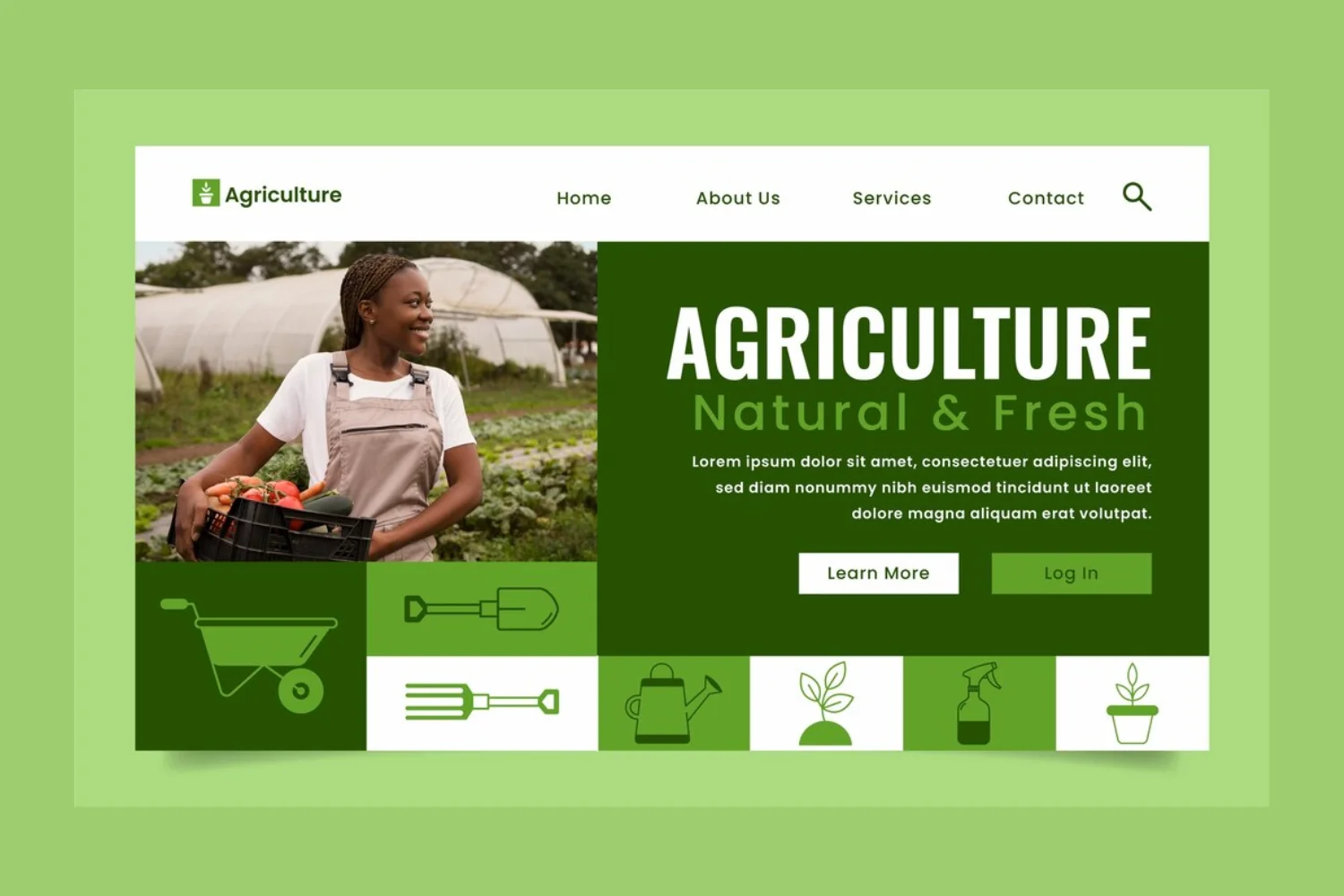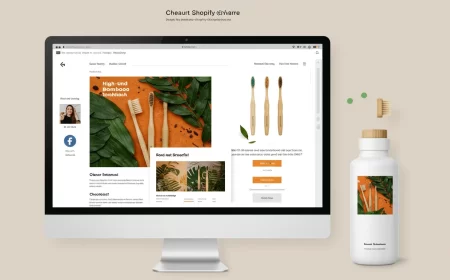In today’s digital age, a strong online presence is no longer just for tech companies or retail giants; it’s an essential tool for farms of all sizes. From selling produce directly to consumers to educating the public about sustainable practices or inviting visitors for agritourism experiences, the best farm websites are cultivating connections, streamlining operations, and building thriving communities around agriculture. A well-designed farm website is more than just an online brochure; it’s a dynamic hub that tells a farm’s unique story, showcases its products, and fosters a deeper relationship with its audience.
This guide will explore the key elements that make a farm website truly stand out. We’ll delve into different types of farm websites, highlight essential features, and showcase inspiring examples that demonstrate how modern agriculture is leveraging digital platforms to grow, educate, and connect. Whether you’re a farmer looking to establish your first online presence or seeking to enhance an existing one, understanding these best practices will help you harvest success in the digital realm.
Why a Strong Online Presence is Crucial for Farms Today
The agricultural landscape is evolving, and so are consumer expectations. People want to know where their food comes from, understand farming practices, and connect with local producers. A robust online presence, anchored by a well-crafted website, addresses these needs and offers numerous benefits:
- Direct-to-Consumer Sales: Websites enable farms to sell produce, meat, dairy, and other products directly to customers, bypassing intermediaries and increasing profit margins. This is a game-changer for many small and medium-sized farms.
- Brand Building & Storytelling: A website provides a platform to share your farm’s unique story, values, and commitment to quality. High-quality photos and engaging narratives build trust and an emotional connection with consumers.
- Education & Transparency: Farms can educate the public about sustainable farming methods, animal welfare, and the challenges of agriculture, fostering a more informed consumer base.
- Agritourism & Events: Websites are vital for promoting farm visits, U-pick experiences, workshops, farm-to-table dinners, and other events, diversifying revenue streams.
- CSA Management: For Community Supported Agriculture (CSA) programs, websites simplify sign-ups, payment processing, and communication with members.
- Reach & Accessibility: A website extends your farm’s reach beyond local markets, making your products and story accessible to a wider audience 24/7.
Key Features of the Best Farm Websites
What makes a farm website truly effective? It’s a combination of aesthetics, functionality, and compelling content.
- High-Quality Visuals: Agriculture is inherently visual. Stunning photography and videography of crops, livestock, landscapes, and farm life are essential. They convey authenticity and quality.
- Clear and Engaging Storytelling: Beyond just products, people connect with the “why” behind your farm. Share your mission, history, and passion.
- Easy-to-Use Navigation: Visitors should quickly find what they’re looking for, whether it’s product listings, farm visit information, or contact details. A clean, intuitive menu is vital.
- Mobile Responsiveness: A significant portion of website traffic comes from mobile devices. Your site must look and function perfectly on smartphones and tablets.
- E-commerce Functionality (if applicable): For farms selling direct, a seamless online store with clear product descriptions, pricing, and secure payment options is non-negotiable. Features like variable-weight product management and subscription options are a plus.
- Contact Information & Location: Clearly display your address, phone number, email, and a map. For agritourism, detailed directions and operating hours are crucial.
- Blog or News Section: Regularly updated content about farm life, seasonal produce, recipes, or upcoming events keeps visitors engaged and improves SEO.
- Social Media Integration: Link to your social media profiles to extend your online community and reach.
- Email List Sign-up: Capture visitor emails to build a loyal customer base and communicate updates, promotions, or CSA availability.
- Testimonials & Reviews: Social proof builds trust. Showcase positive feedback from customers or visitors.
Inspiring Examples: The Best Farm Websites in Action
Let’s explore some of the best farm websites that exemplify effective online strategies across different agricultural niches.
Direct-to-Consumer & Product-Focused Farms
These websites excel at showcasing products and facilitating online sales.
- Rondriso Farms: This Canadian farm’s website prioritizes efficiency and user-friendliness. It’s clean, loads quickly, and makes it easy for visitors to find information about their produce and farm activities.
- Beeworthy Farms: An excellent example of displaying crucial information with easy navigation. Their site is built for clarity, allowing visitors to absorb information about their farm and products at their own pace.
- Pure Land Organic: Despite a straightforward appearance, this website effectively serves its purpose, offering a professional-looking design that’s easy to navigate to find vital information about their organic farm.
- Pipers Farm: This UK-based farm’s website engages users with clear, concise content and appealing typography, making it easy to understand their commitment to sustainable farming and high-quality meat.
- Holmes Brothers Farm: Features a nicely organized agricultural website with a clean white, black, and brown color scheme, effectively showcasing their farm and offerings.
- The Sill: While more of a plant retailer, its clean and intuitive layout demonstrates how an agricultural-adjacent business can simplify its online presence for a broad audience.
- Floret Flowers: This flower farm’s website is visually stunning, leveraging beautiful photography to showcase their blooms and educational resources, inspiring flower enthusiasts worldwide.
- Packington Free Range: A great example of a farm selling meat products directly, with clear navigation and a focus on their ethical farming practices.
- Johnny’s Selected Seeds: A leading seed supplier, their e-commerce site is highly functional, allowing farmers and gardeners to easily browse and purchase seeds with detailed product information.
- Burpee: Another well-known seed and plant company, Burpee’s website offers extensive product catalogs, gardening advice, and a user-friendly shopping experience.
Agritourism & Experiential Farms
These sites focus on inviting visitors to the farm for unique experiences.
- Huntstile Organic Farm: This website excels at engaging readers with intriguing materials and fascinating photos, providing useful information about the farm, its organic practices, and accommodation options.
- Magicland Farms: Features an uncluttered and elegant design with excellent use of white space and high-quality images, welcoming visitors to explore their unique farm experiences.
- Winterspring Farm: This website is filled with striking visuals and a positive color scheme, making it an enjoyable visit for anyone interested in fresh organic farming and CSA programs.
- Woodstock Farm Sanctuary: A well-designed site that effectively communicates the sanctuary’s mission, values, and activities, inviting visitors to connect with rescued farm animals.
- Hermitage Farm: Showcases a blend of horse farming, culinary experiences, and bourbon, with a sophisticated website design that highlights its diverse offerings.
- Apricot Lane Farms: Famous for “The Biggest Little Farm” documentary, their website beautifully tells their story of regenerative agriculture and offers ways to connect with their mission.
- Serenbe Farms: Part of a larger community focused on sustainable living, their farm website highlights their CSA, educational programs, and farm-to-table initiatives.
- Wildwood Christmas Tree Farm: A festive and user-friendly platform that captures the spirit of the holiday season, welcoming visitors for a traditional Christmas tree experience.
- Garden Sweet: One of the most visually pleasing farm websites, Garden Sweet offers a delightful experience for visitors interested in U-pick berries and flowers.
- Benziger Family Winery: While a winery, its website exemplifies agritourism, subtly guiding visitors through their biodynamic farming practices and wine-tasting experiences.
Large-Scale Agriculture & Agribusiness
These websites represent larger farming operations, agricultural services, or industry news.
- AA Co (Australian Agricultural Company): This website impresses with an engaging design that balances photographs and text, providing a pleasant browsing experience for a large-scale beef producer.
- Bowery Farming: A leader in vertical farming, Bowery’s website uses text animations and scrolling effects to create a modern, engaging impression, showcasing their innovative approach to agriculture.
- R.D. Offutt Farms: Represents a large potato farming operation, with a professional website that provides information about their scale, sustainability efforts, and community involvement.
- Simplot: A global agribusiness company, Simplot’s website uses a clean design with effective imagery and clear navigation to present their diverse agricultural products and services.
- AeroFarms: Another prominent vertical farming company, AeroFarms’ website features a bright, modern design with clear calls-to-action, highlighting their innovative indoor farming technology.
- Plenty: This agricultural establishment exemplifies innovation and sustainability with a well-organized website, subtle animations, and captivating fonts that showcase their cutting-edge vertical farms.
- AgWeb: A leading source for agriculture news and commodity markets, AgWeb provides farmers and industry professionals with timely information and market analysis.
- AGRIVI: Offers comprehensive digital agriculture solutions, with a website that clearly outlines their farm management software and AI-driven tools for sustainable and efficient farming.
- Access Agriculture: A non-profit organization supporting organic farming and agroecology, their website provides a world-leading video library of farmer-to-farmer training videos in local languages.
- AgriMarket: An e-commerce platform for farmers focusing on bulk sales of grains and other farm commodities, demonstrating a functional online marketplace for agricultural products.
These examples collectively demonstrate the diverse and effective ways farms are leveraging the digital space to connect, sell, and educate.
Tools for Building Your Best Farm Website
Creating an effective farm website doesn’t require advanced coding skills. Many user-friendly platforms and tools are available:
- Website Builders (e.g., Wix, Squarespace, WordPress.com): These platforms offer drag-and-drop interfaces, customizable templates, and integrated e-commerce features, making it easy for anyone to build a professional-looking site.
- Farm-Specific E-commerce Platforms (e.g., GrazeCart, Local Line, Barn2Door, Farmigo): These are tailored for agricultural businesses, offering features like variable-weight product management, CSA management, and flexible fulfillment options.
- Photography & Videography Tools: Invest in good quality photos and videos. Even a modern smartphone can capture stunning visuals if used effectively. Consider hiring a local professional for key shots.
- Email Marketing Services (e.g., Mailchimp, Constant Contact): Integrate these services to build your customer list and send newsletters, CSA updates, or special offers.
- Social Media Platforms: Use platforms like Instagram, Facebook, and TikTok to share daily farm life, engage with your audience, and drive traffic back to your website.
Frequently Asked Questions (FAQs)
Q1: What is the most important feature for a direct-to-consumer farm website?
For a direct-to-consumer farm website, the most important feature is robust and easy-to-use e-commerce functionality. This includes clear product listings, secure payment processing, options for local pickup or delivery, and ideally, features for managing variable-weight products or CSA subscriptions.
Q2: How can a small farm with a limited budget create a good website?
Small farms with limited budgets can utilize user-friendly website builders like Wix or Squarespace, which offer affordable plans and intuitive drag-and-drop interfaces. Focusing on high-quality photos taken with a smartphone, clear storytelling, and essential contact/product information can create an effective site without significant investment.
Q3: What kind of content should a farm blog include?
A farm blog should include content that educates, informs, and engages your audience. This can range from seasonal updates on crops and livestock, behind-the-scenes glimpses of farm life, sustainable farming practices, recipes using your produce, profiles of farm workers, or announcements about upcoming events.
Q4: How can I use my farm website to promote agritourism?
To promote agritourism, your website should have a dedicated section detailing visitor experiences (e.g., U-pick, farm tours, workshops, events). Include clear pricing, operating hours, directions, and booking information. High-quality photos and videos of past events and visitor experiences are crucial to entice new visitors.
Q5: Is SEO important for a farm website?
Yes, SEO (Search Engine Optimization) is important for a farm website. By optimizing your site with relevant keywords (e.g., “local organic produce,” “farm tours near [your city]”), you can improve your visibility in search engine results, helping potential customers find your farm and products more easily.
Q6: How often should I update my farm website?
The frequency of updates depends on your farm’s activities. For farms with seasonal products or regular events, weekly or bi-weekly updates (e.g., blog posts, new product listings, event announcements) are ideal. Even for less active sites, updating content quarterly or at least twice a year keeps the site fresh and relevant.
Conclusion
The digital frontier offers immense opportunities for modern agriculture. The best farm websites are not just online brochures; they are dynamic platforms that bridge the gap between farm and consumer, fostering transparency, building community, and driving sales. By focusing on compelling visuals, clear storytelling, user-friendly functionality, and strategic online tools, any farm can cultivate a thriving online presence. Embrace the power of the web to share your passion, connect with your audience, and ensure your farm flourishes for generations to come.
Ready to grow your farm’s online presence? Start exploring these inspiring websites and consider how you can implement these best practices. Contact us for a consultation to help your farm’s digital journey blossom!












